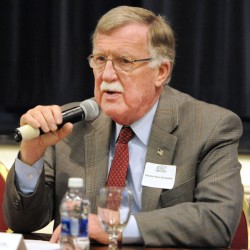Delaware Governor Approves Tax Relief for State’s Casinos

On June 30th, Delaware’s three casinos got a little bit of financial breathing room after Governor John Carney signed into law “An Act To Amend Title 29 Of The Delaware Code Relating To Lotteries”. The piece of legislation is designed to cut the tax rate on revenues from slot machines and table games, with the Delaware House of Representatives passing the tax cuts on June 28 by a vote of 35-4, and then the Senate by a vote of 17-3, before being sent to the governor’s desk for signing.
About the Tax Reductions
The new tax rate for slot machines is 41.5%, down from the previous level of 42.5%. The real savings, however, come from the change in the rate on table games which has been lowered down to 15.5% from 29.4% before. Additional tax relief, amounting to a few percentage points, will also be granted to those casinos that meet certain thresholds concerning the amount of revenue that they reinvest back into their businesses. In total, the value of these tax reductions is expected to be around $16.8 million annually.
Political Maneuvering
The bill was the brainchild of Democrat State Senator Brian Bushweller (photo) who introduced it to the Senate as SB144. He has long been an advocate of lowering the tax liabilities of Delaware casinos, and indeed, it was he who championed the $10 million bailout of the state’s casino industry in 2014. He has noted that the casinos must fork over payroll taxes, corporate income taxes, and all the other governmental levies that most businesses pay, and in addition, they’re hamstrung by some of the most draconian gaming tax levels in the country.
However, there are others who opposed Bushweller’s efforts. Senator Harris McDowell, chairperson of the Finance Committee, stalled the legislation until Governor Carney got involved and brokered a deal that called for $20 million per year in tax reductions for Delaware casinos.
This proposal passed the Senate with ease, but it encountered trouble in the House where several lawmakers wanted to cut the tax break in half. One of them was House Speaker Pete Schwartkopf, who asserted that the tax break suggested would leave less money available for “various programs benefiting seniors, students and people with disabilities, as well as adequately supporting correctional officers, probation and parole officers and other state workers.”
Finally, a compromise was reached on the current $16.8 million figure, and as Schwartkopf subsequently noted, the state’s three casinos have now secured enough money to ensure that their businesses remain solvent, and their employees jobs are safe, while the State receives an additional $3.6 million in funding. This concession came just in the nick of time on June 28 – a mere two days before the end of the 2018 legislative session.
Reasons for the Tax Adjustment
Delaware’s casino industry is small, consisting of just three “racinos” – that is, racetracks that also run casino gaming operations. They are: Dover Downs in Dover, Delaware Park Racetrack in Wilmington and Harrington Raceway in Harrington. They were first allowed to install slot-like electronic terminals in the mid-’90s, and their offerings expanded to include table games in 2009.
Though these companies were initially taxed at about half the current amount, they have been subjected to seven separate increases over the years. Simultaneously, competition has grown with nearby states, like Maryland, opening up their own casinos. The financial records for Dover Downs, which is publicly traded, show that it booked a loss of more than $1 million in 2017 on total revenue of $177 million. CEO Denis McGlynn commented:
“Once again the Company demonstrated substantial gaming operational profitability which once again was totally wiped out by an unfair and outdated gaming revenue-sharing formula.”
Delaware is expected to show a budget surplus in the coming fiscal year of around $400 million: quite a change from the situation last year in which it suffered a shortfall of a similar magnitude. The gaming tax rates had been increased in prior financially challenging years. With the new surplus funds filling state coffers, perhaps state leaders felt that the time was right to lift the burden placed on the struggling casino industry.
Sports Betting to the Rescue?
Besides the tax cut, many observers feel that the advent of legalized sports betting could be another factor boosting the casinos’ bottom lines going forward. Delaware has already had limited NFL parlay betting for decades, but the recent Murphy v. NCAA Supreme Court ruling on May 14 opened the door for an expansion in this type of wagering.
Delaware lost no time in capitalizing on the new market, either, broadening its sports betting on June 5 at all three of its casinos’ sportsbooks. In the first 20 days after this date, DE sportsbooks accepted $7 million in wagers and booked $1 million in revenue. This compares very favorably to the $4.8 million in revenue recorded during the last NFL season on parlay bets. The share price of Dover Downs (DDE) has almost doubled since the start of 2018: undoubtedly a consequence of the new legal climate for betting on sports.
Yet, we must be wary of pie-in-the-sky profit forecasts from new forms of gambling. When Delaware legalized regulated online casino and poker games in 2012, many felt that this would turn out to be a windfall. However, 2017 annual revenue from all online gaming in Delaware was just $2.4 million of which internet poker accounted for a paltry $231,000.
Still, even if the high hopes for Delaware sports betting turn out to be unfounded, the casinos undoubtedly appreciate the tax cuts that were just enacted. They will now benefit from better economic prospects especially as they strive to operate in an increasingly crowded marketplace.










